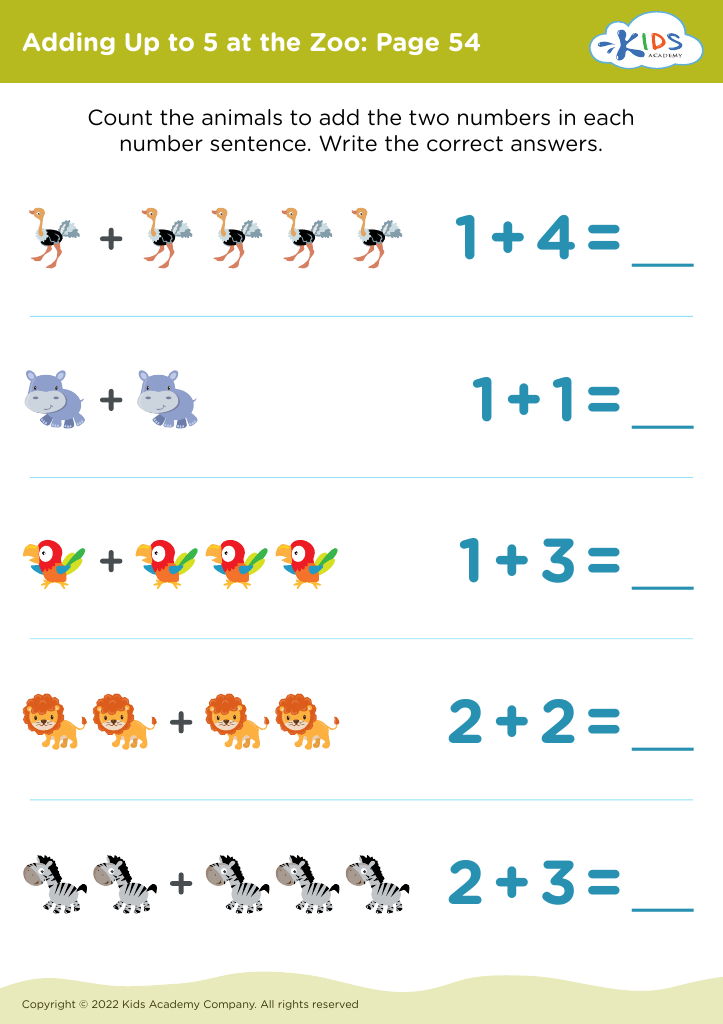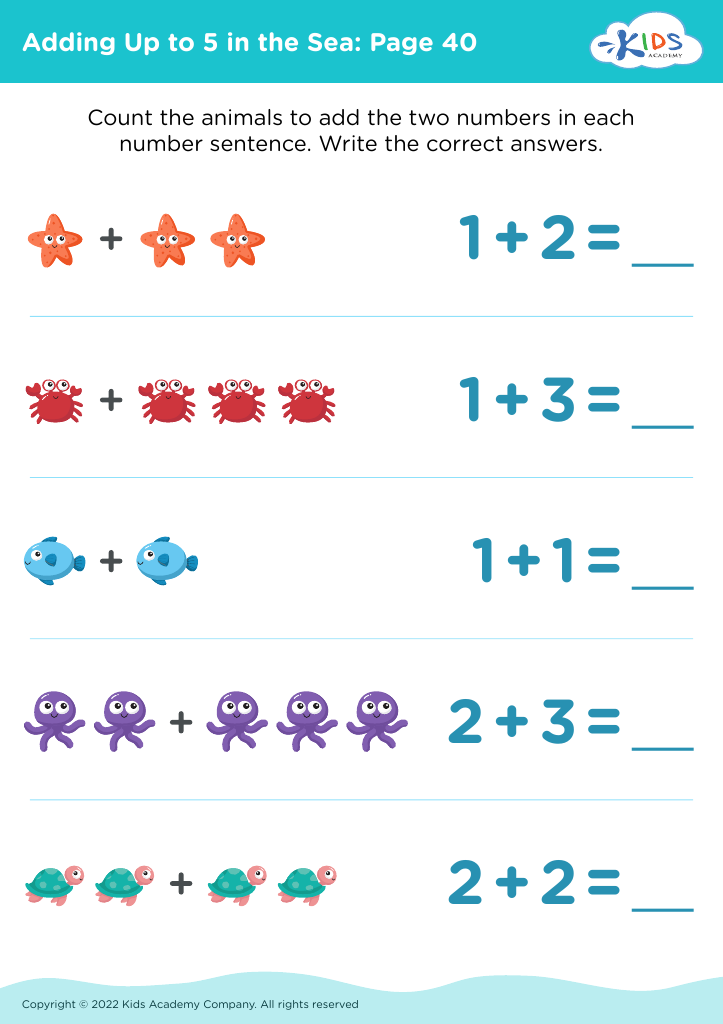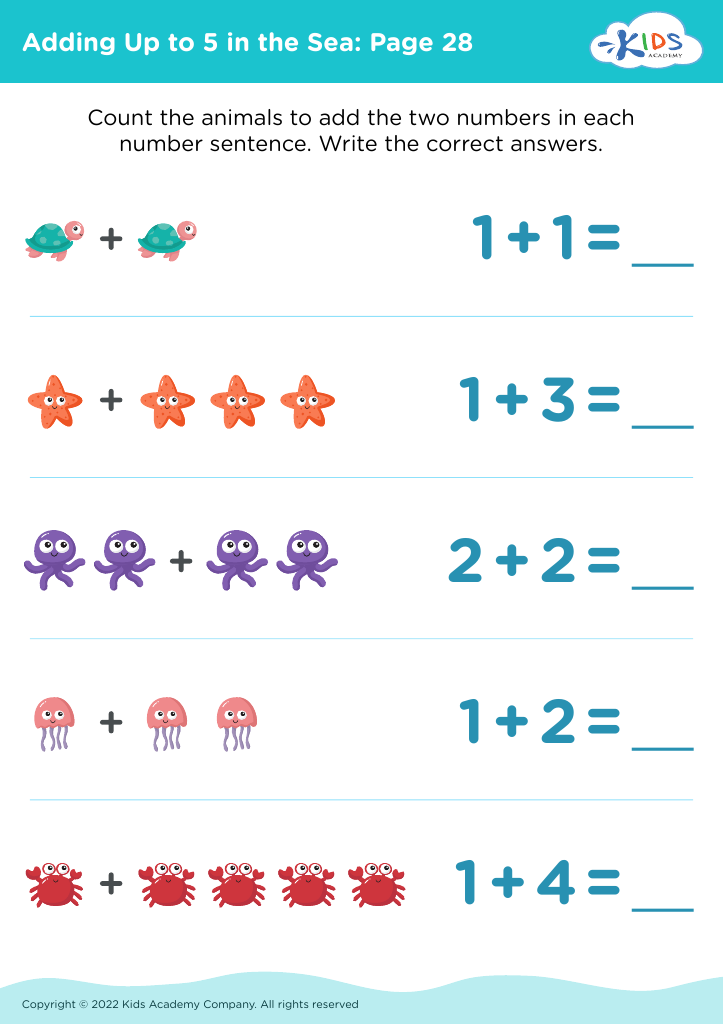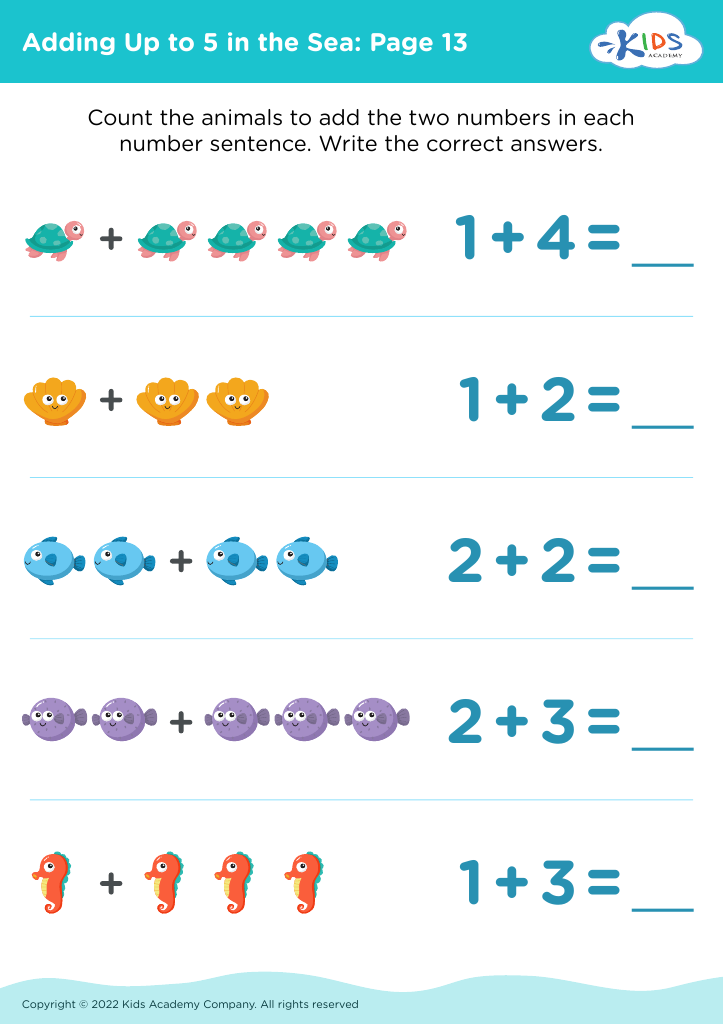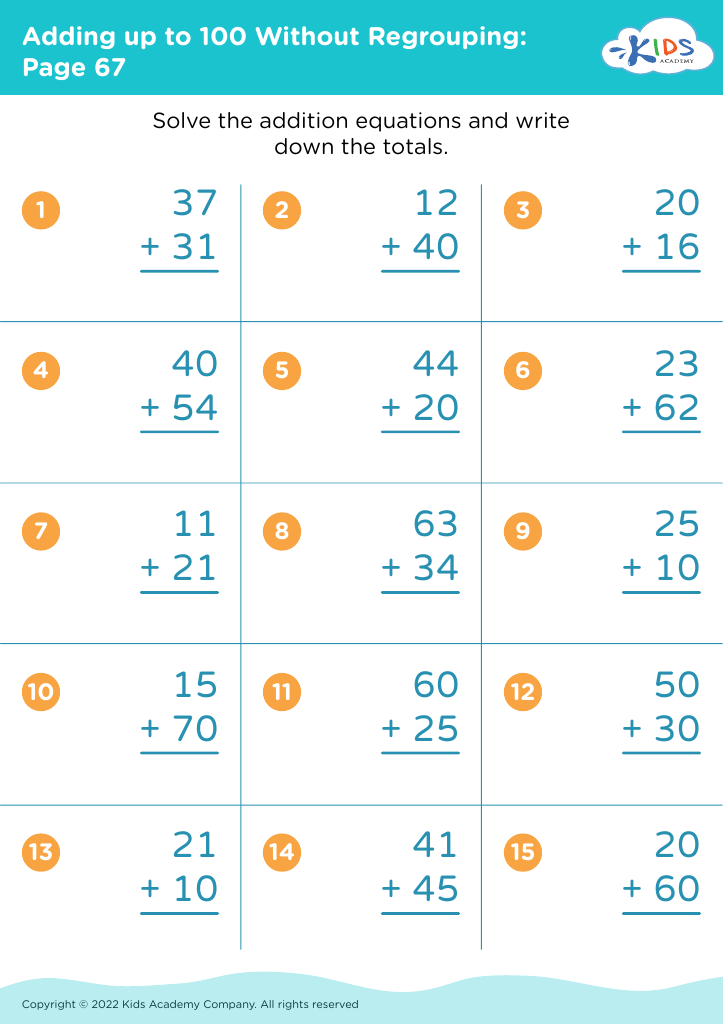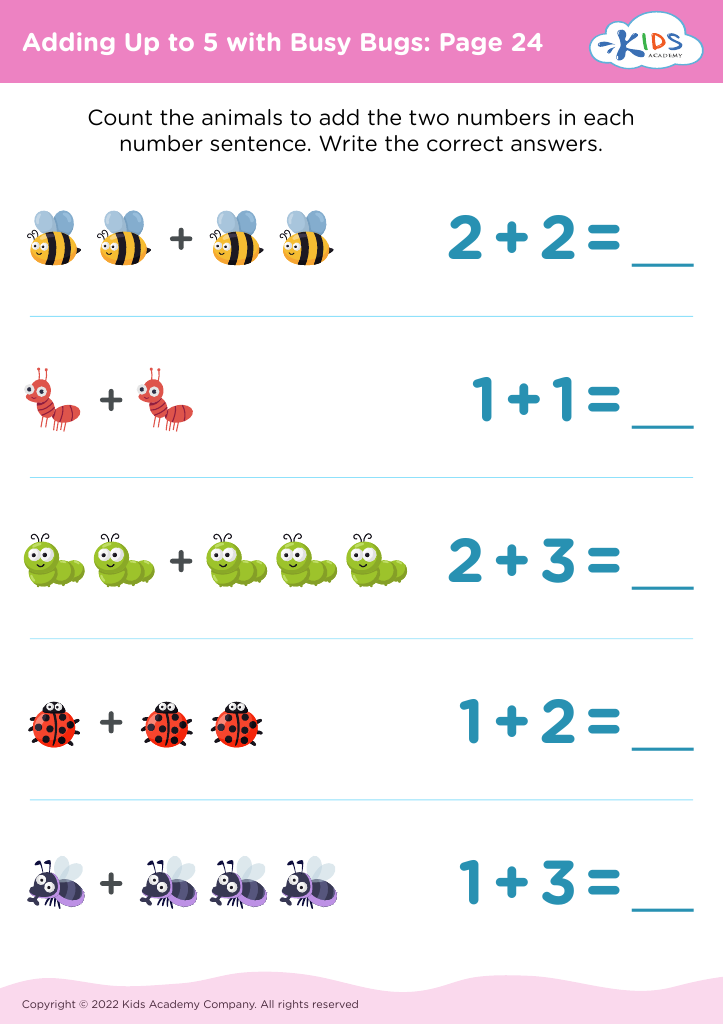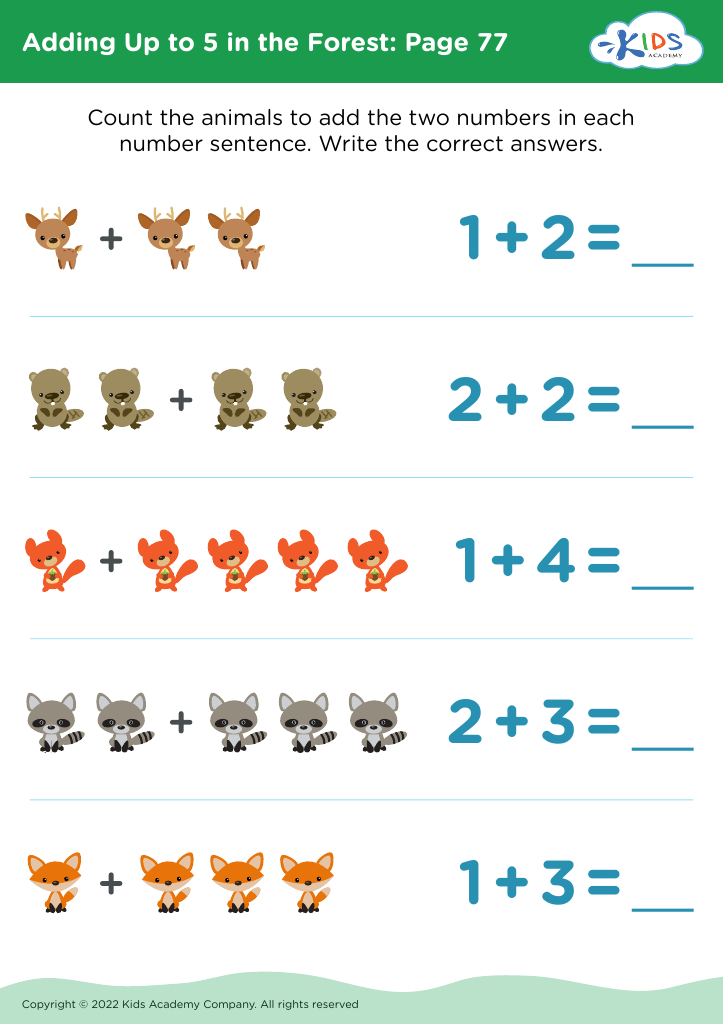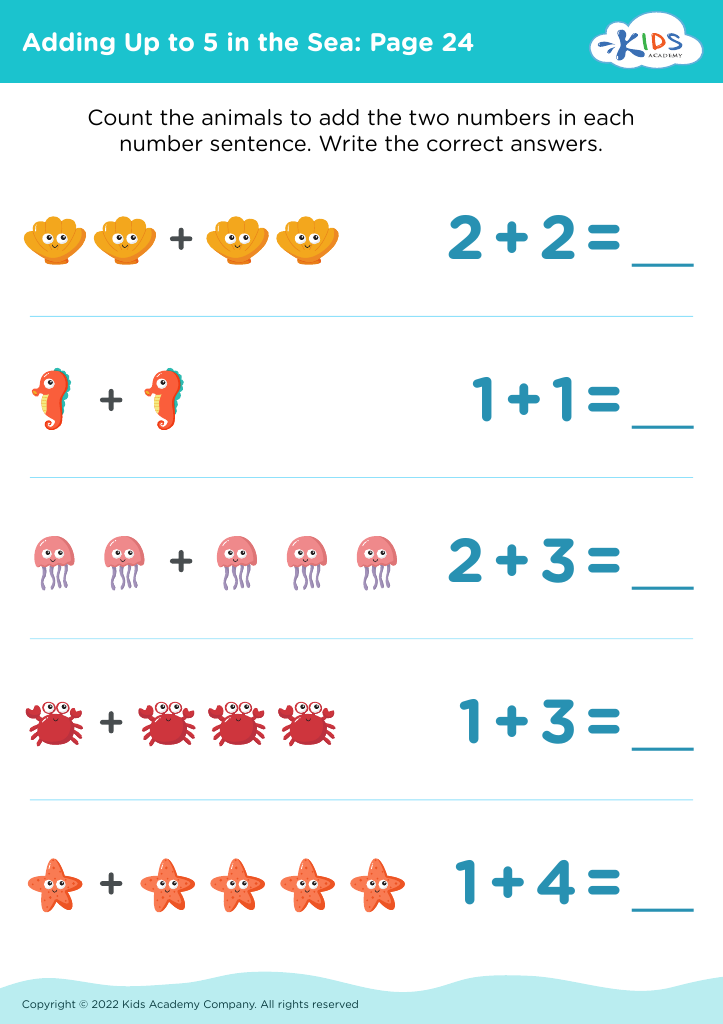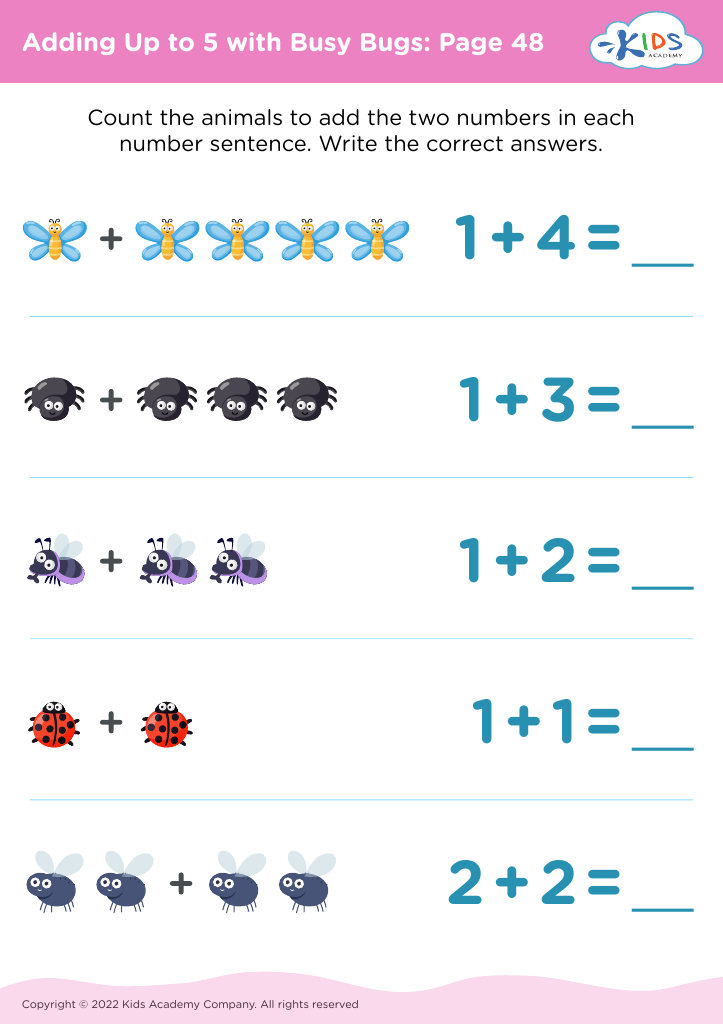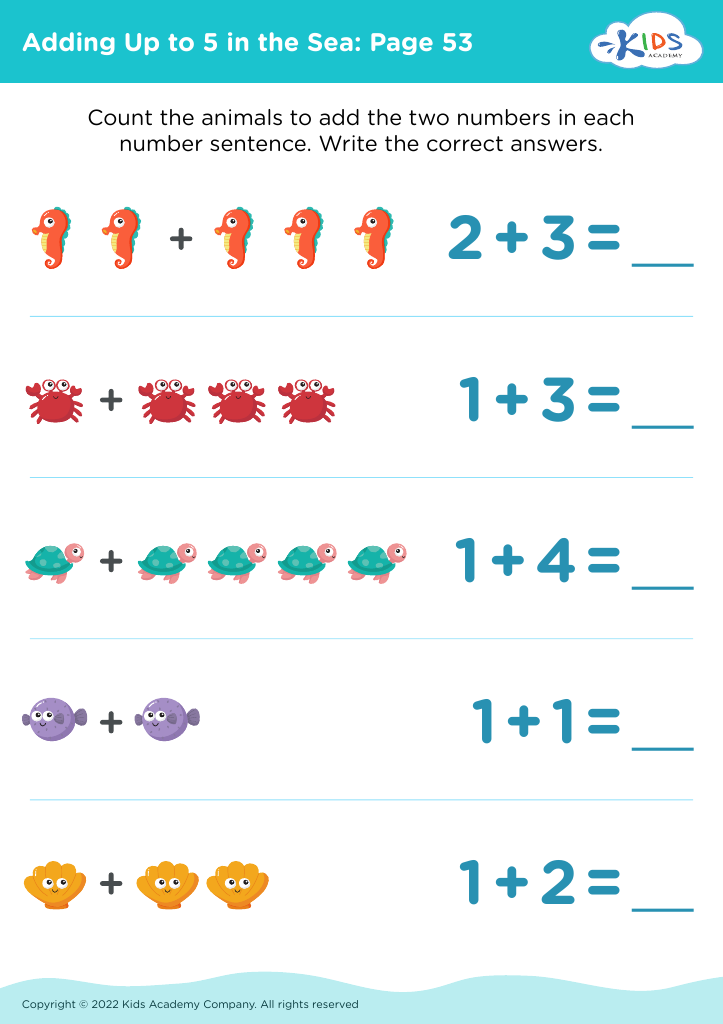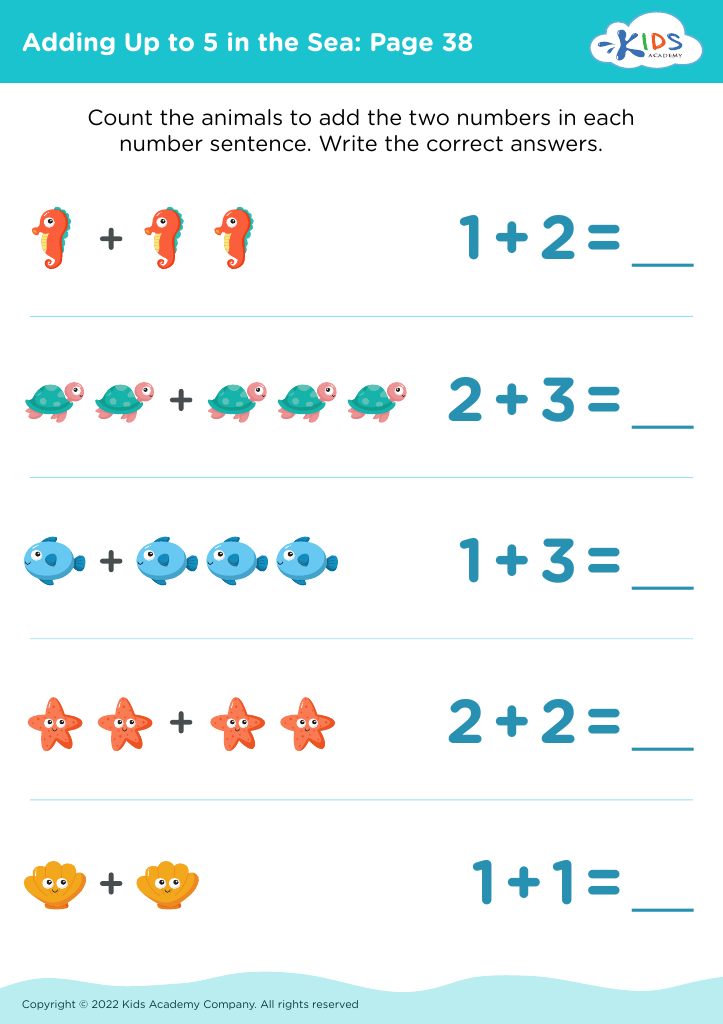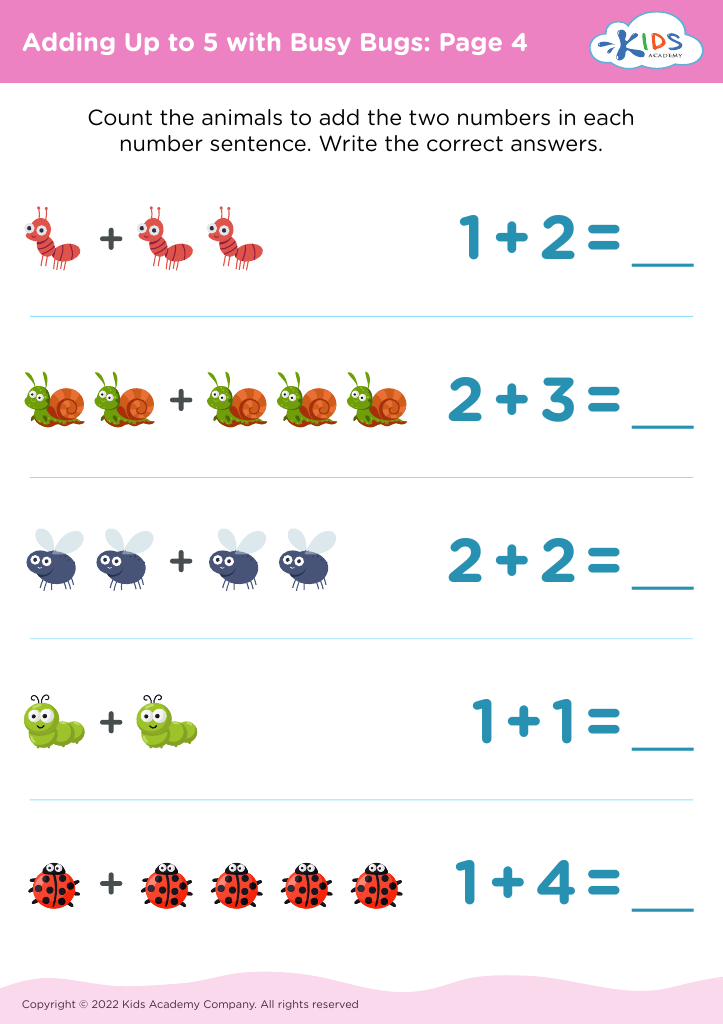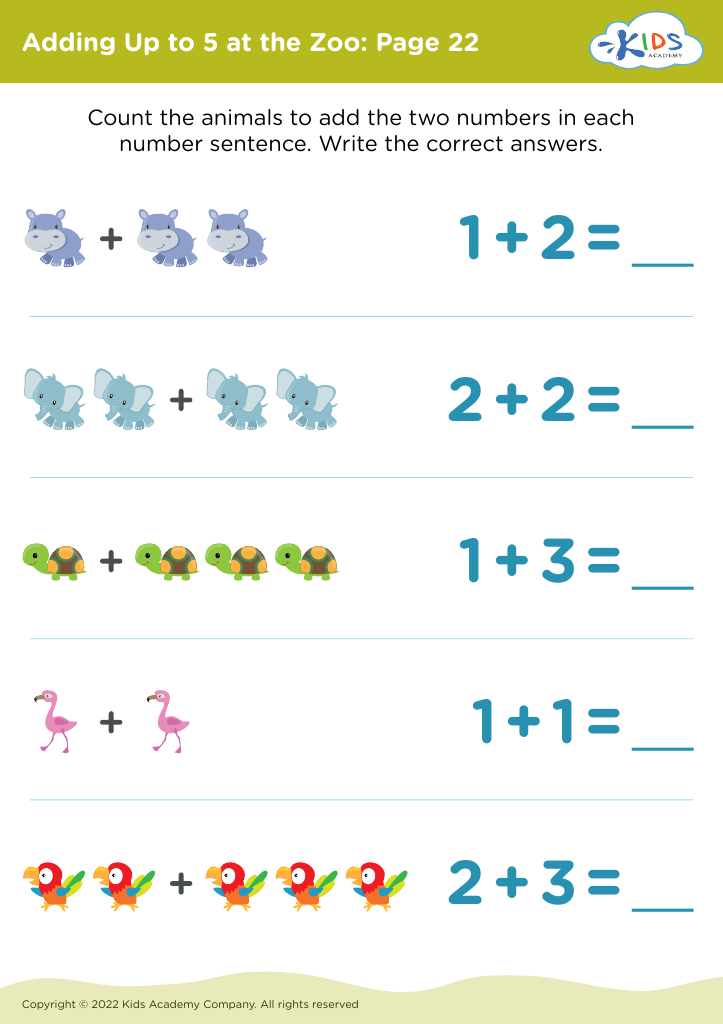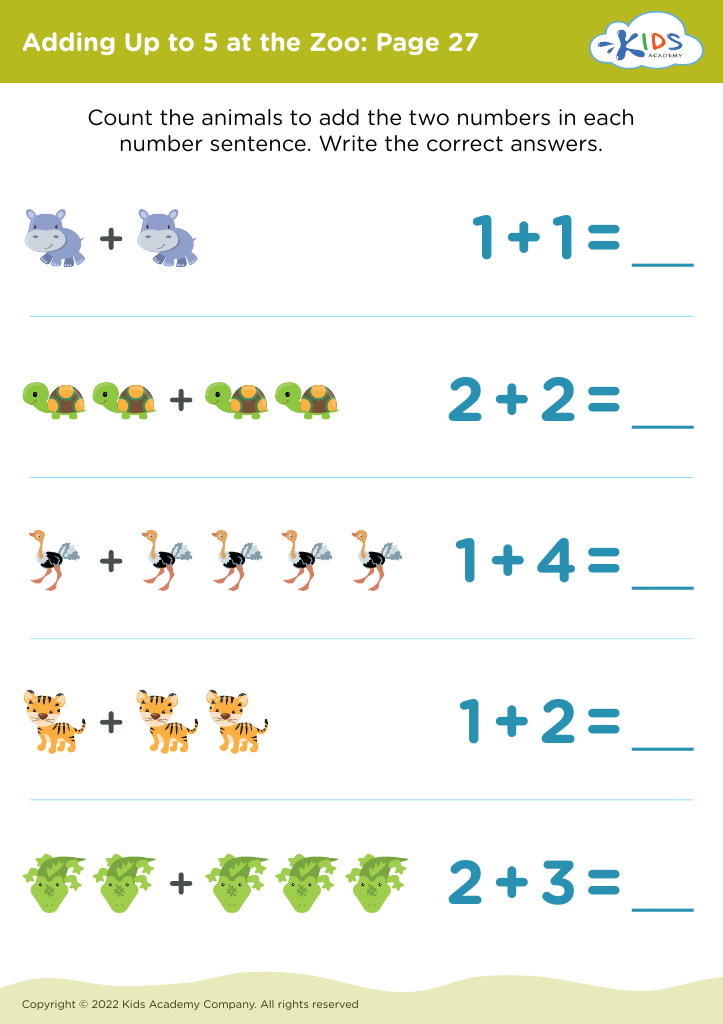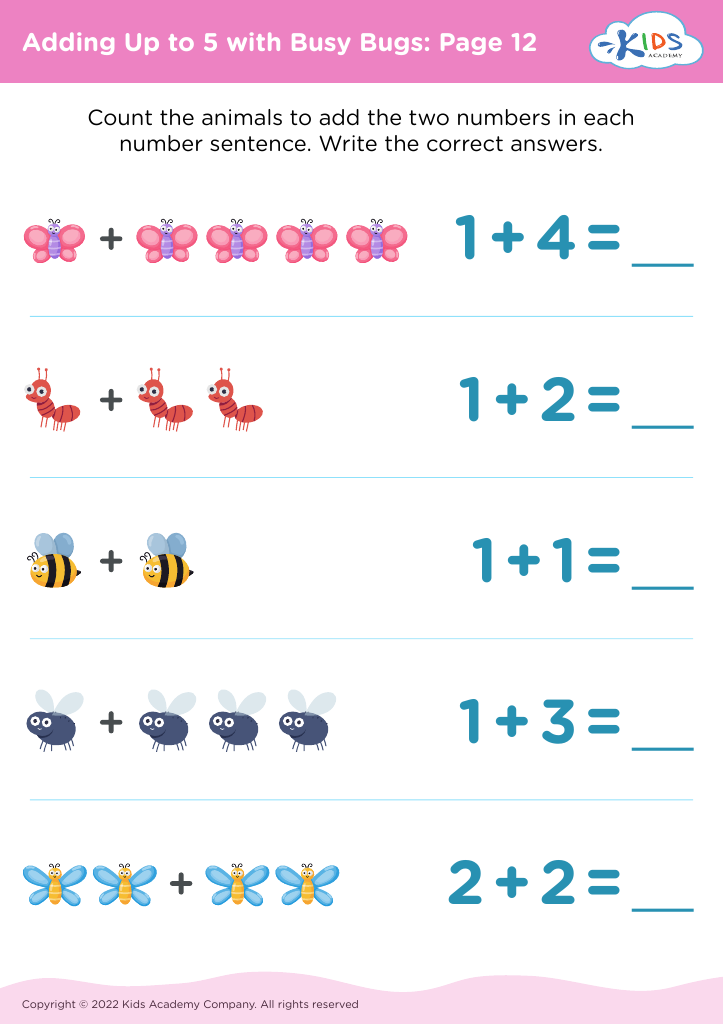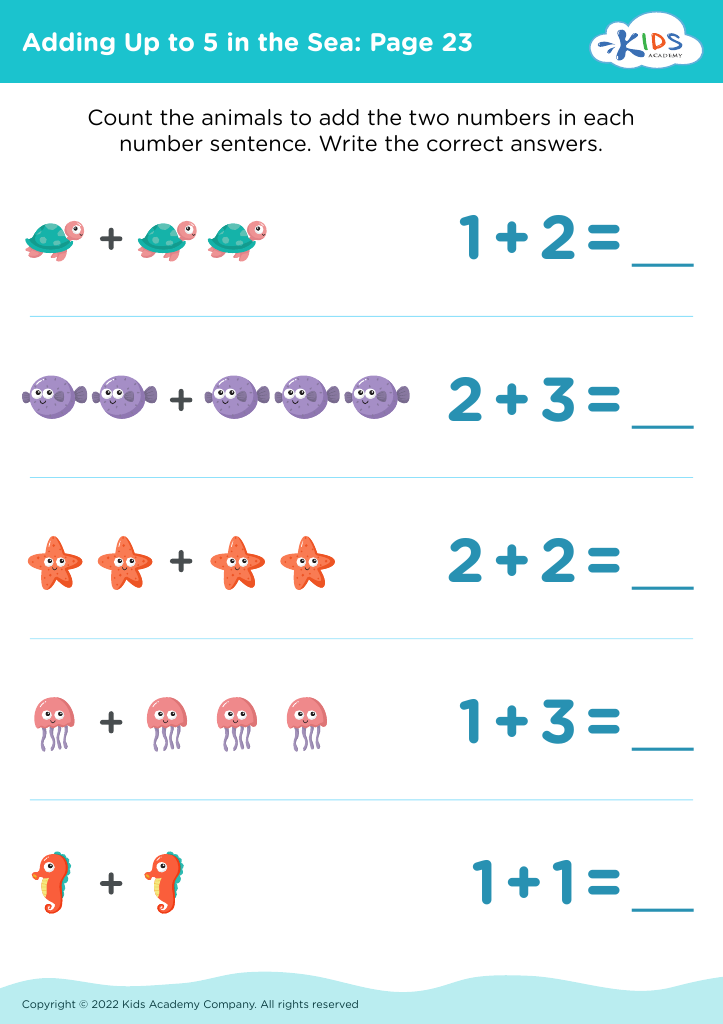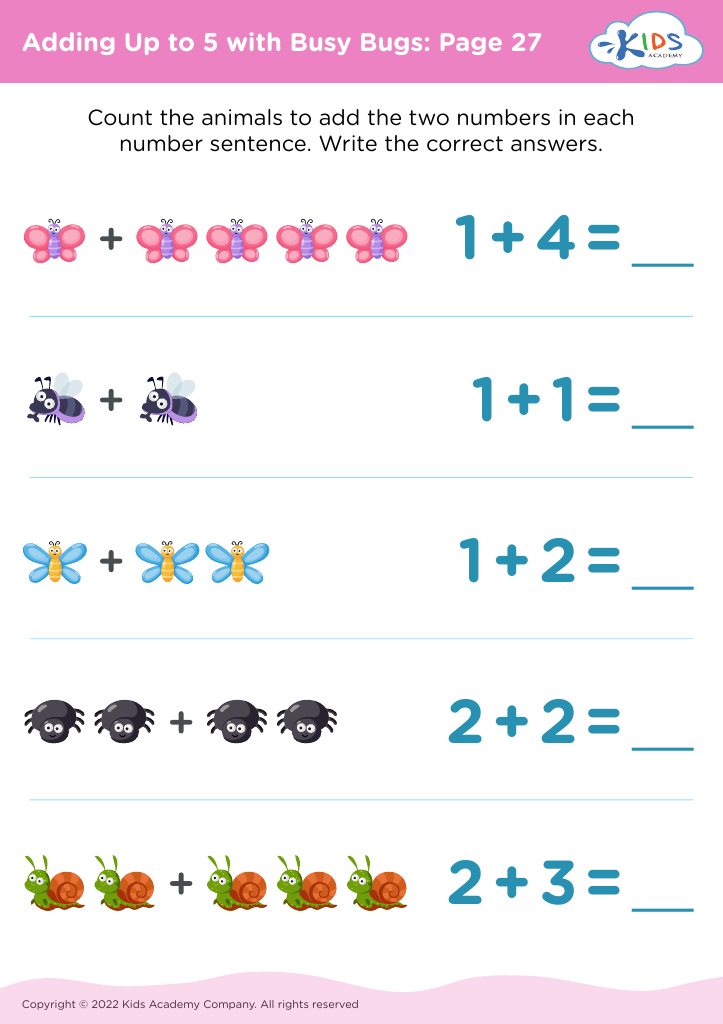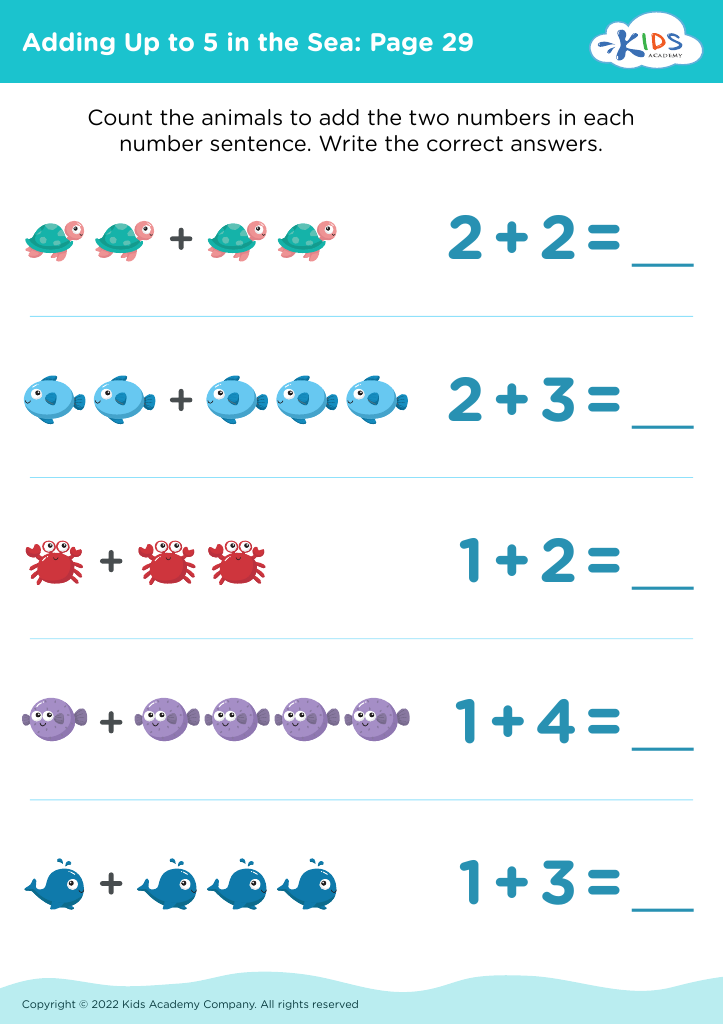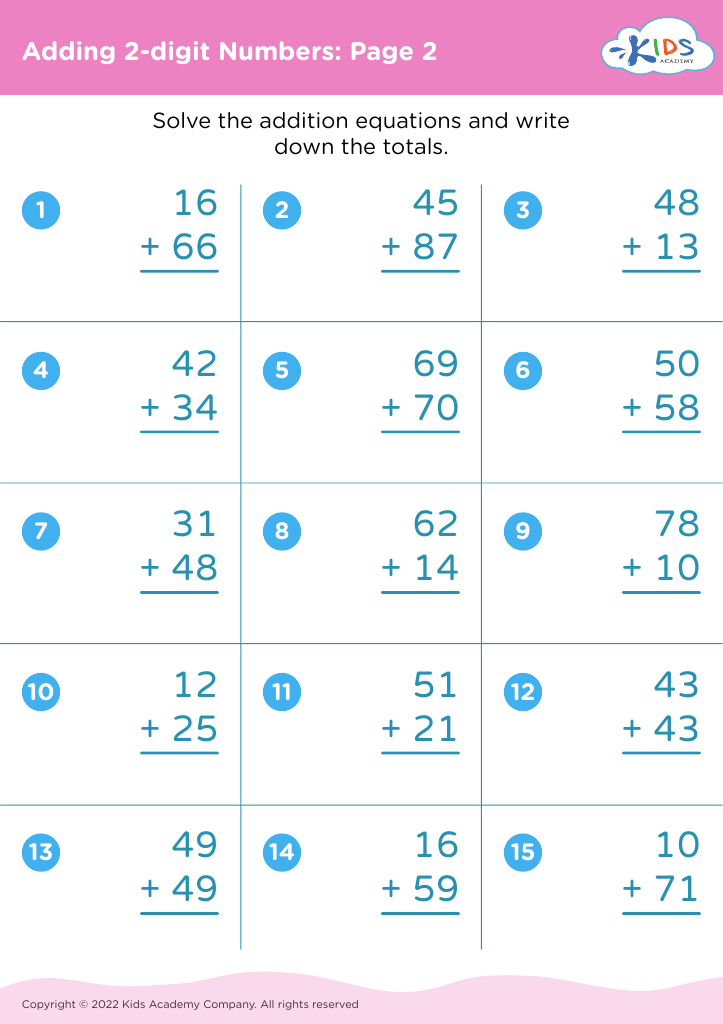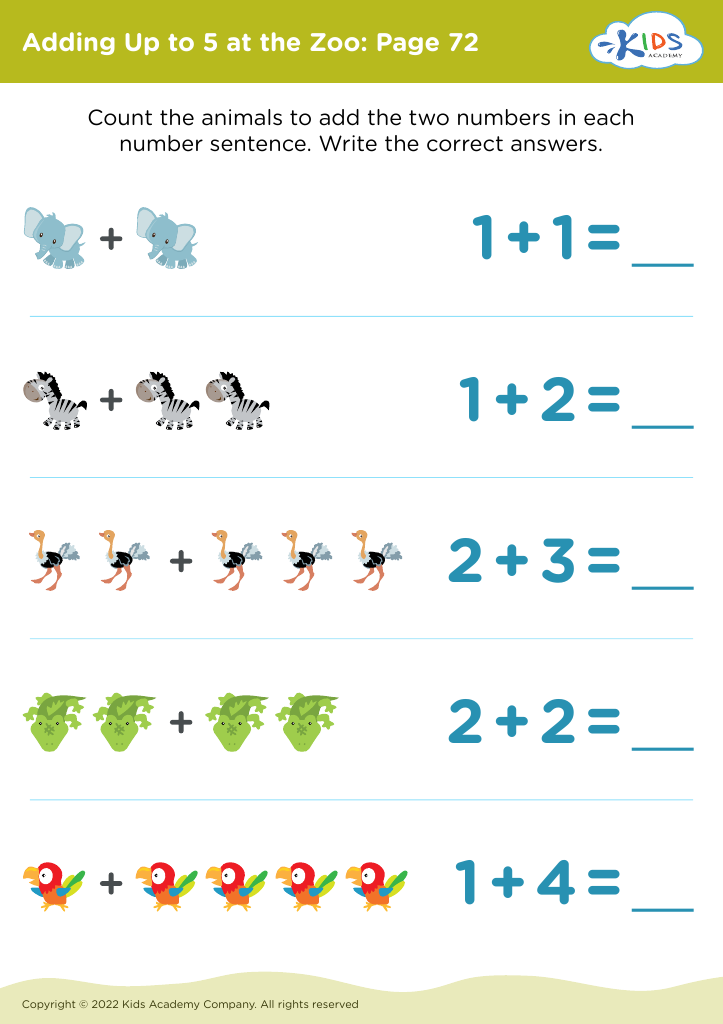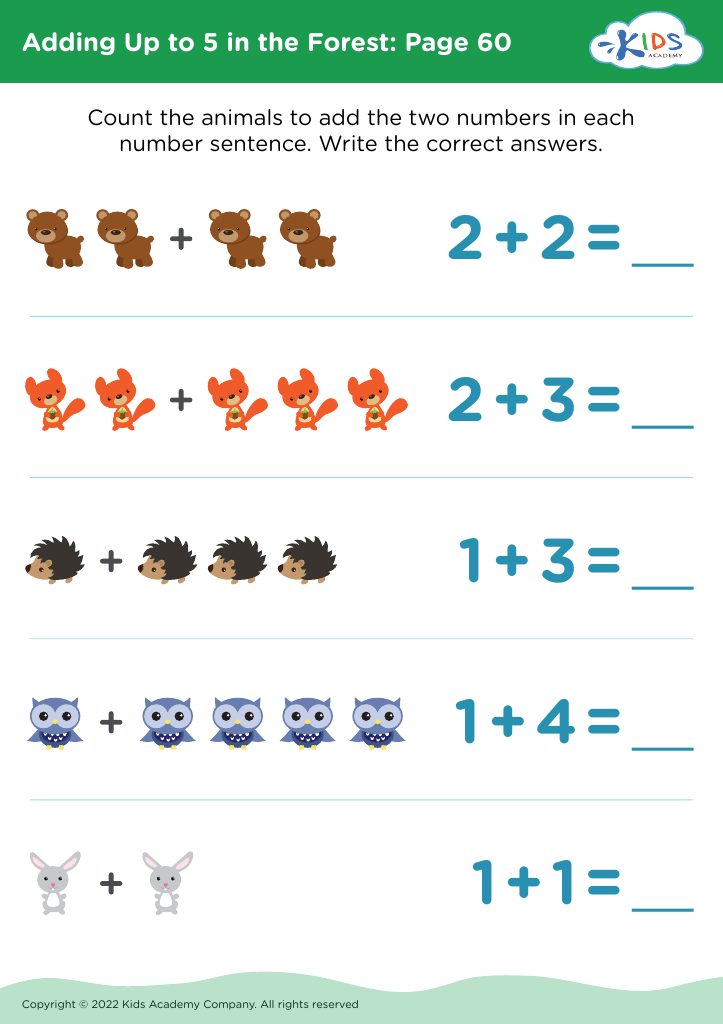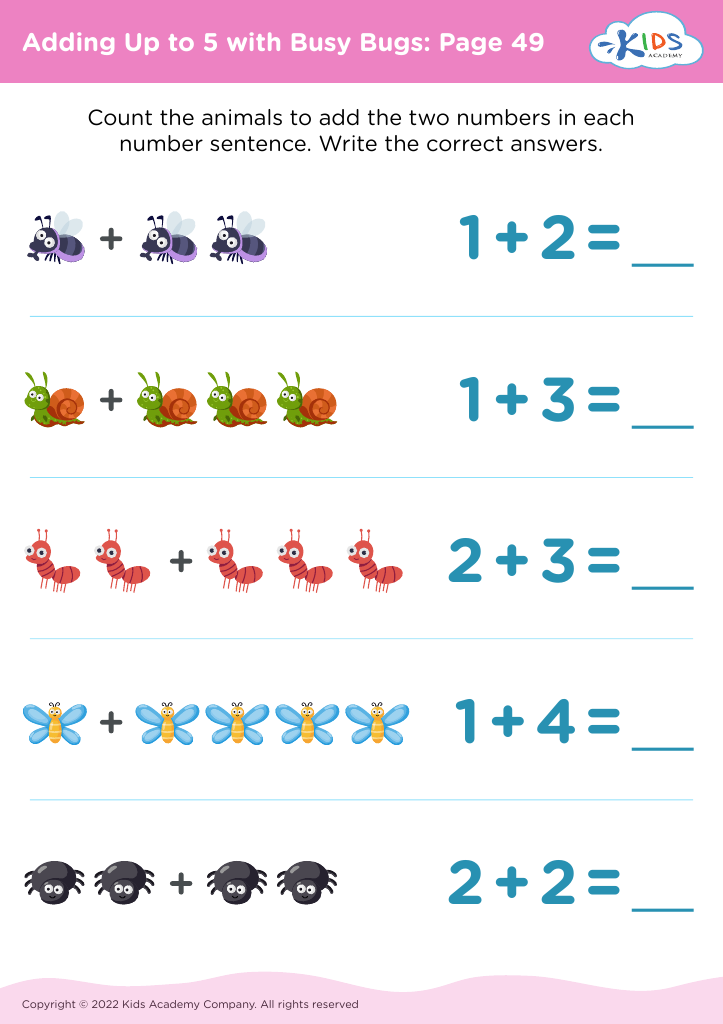Cognitive Development Addition Worksheets for Ages 5-8
114 filtered results
-
From - To
Boost your child's early math skills with our Cognitive Development Addition Worksheets, designed for ages 5-8. These engaging, age-appropriate activities are crafted to enhance cognitive abilities, fostering critical thinking and problem-solving skills in young learners. Each worksheet incorporates vibrant visuals and simple instructions to make learning fun and effective. Our resources support foundational addition concepts, establishing a strong mathematical foundation crucial for future success. Ideal for both classroom use and at-home practice, these expertly designed worksheets ensure your child enjoys a stimulating and rewarding educational experience. Empower your little math enthusiast with our innovative cognitive development tools today!
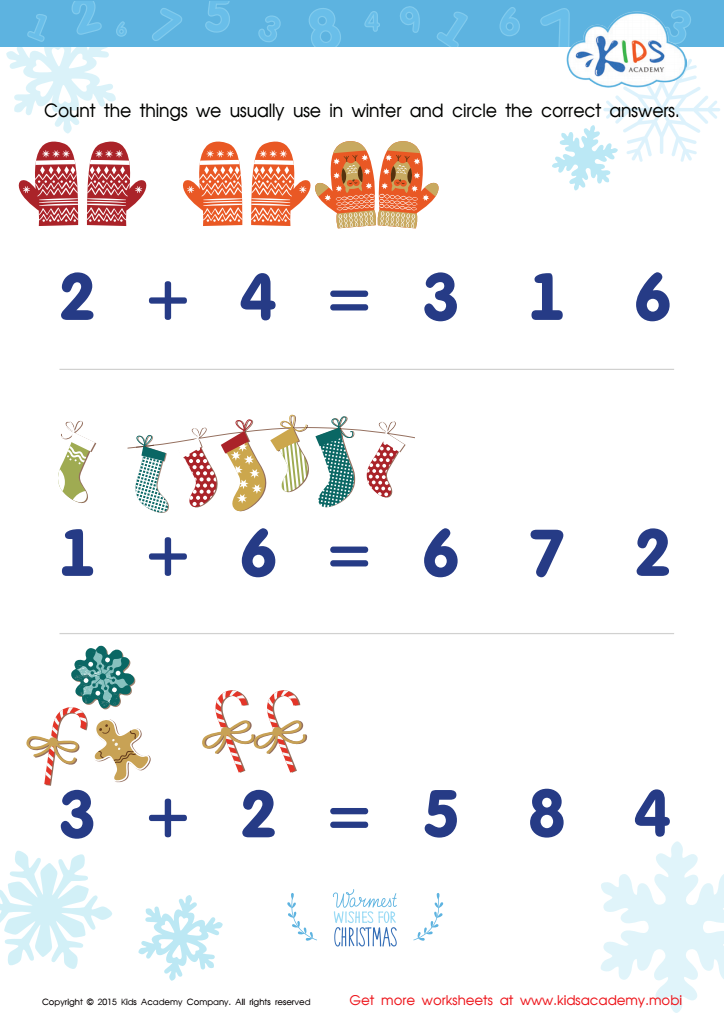

Count Winter Things Worksheet
Cognitive development in children aged 5-8 is crucial as it forms the foundation for future learning and intellectual growth. During this stage, children develop critical thinking skills, memory, problem-solving abilities, and understanding of concepts like sequence and cause-and-effect. Mastering these cognitive skills is essential for academic success in subjects such as math and reading. For example, understanding addition not only boosts arithmetic abilities but also enhances logical reasoning, pattern recognition, and the ability to perform multi-step tasks.
Parents and teachers play a pivotal role in fostering cognitive development by providing stimulating environments, engaging activities, and positive reinforcement. This nurturing helps children build confidence and develop a love for learning. Practical activities such as games, puzzles, and interactive storytelling can make learning addition exciting and relevant, thereby reinforcing cognitive development.
Early cognitive development also impacts social skills. As children learn to solve problems and understand concepts, they become better at communicating, collaborating, and empathizing with peers. These social skills are just as important as academic skills in ensuring well-rounded development.
Overall, investing time and effort in promoting cognitive development during these formative years creates a solid educational groundwork, setting children up for lifelong learning and success.
 Assign to My Students
Assign to My Students

